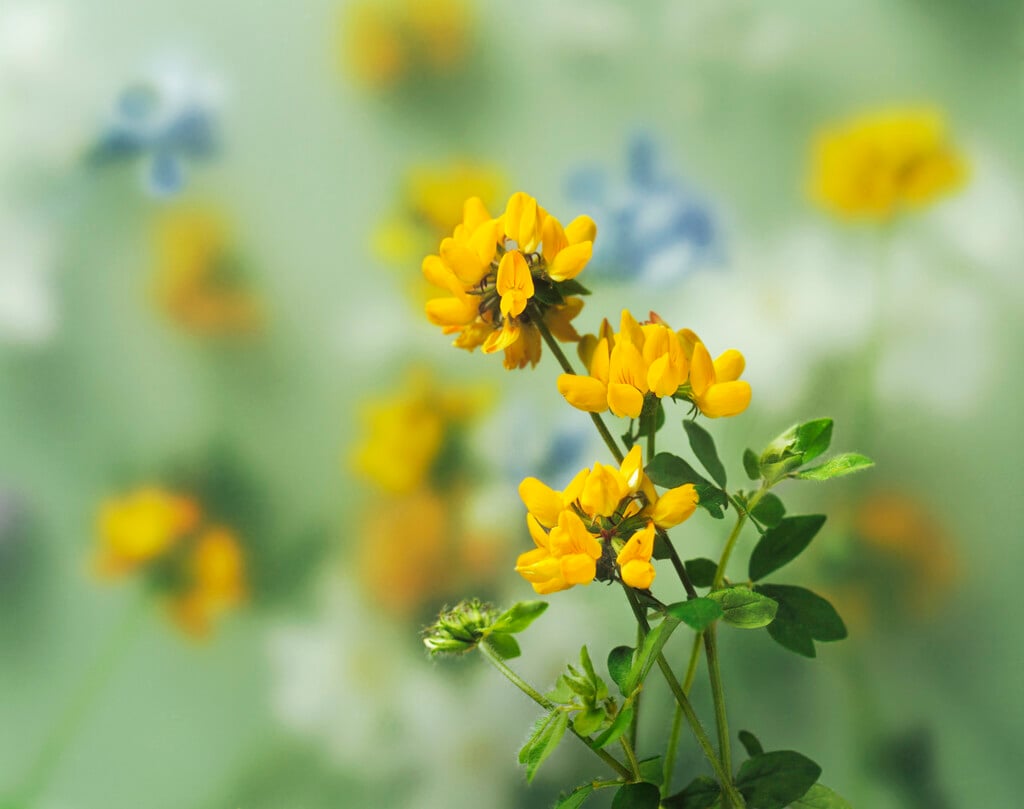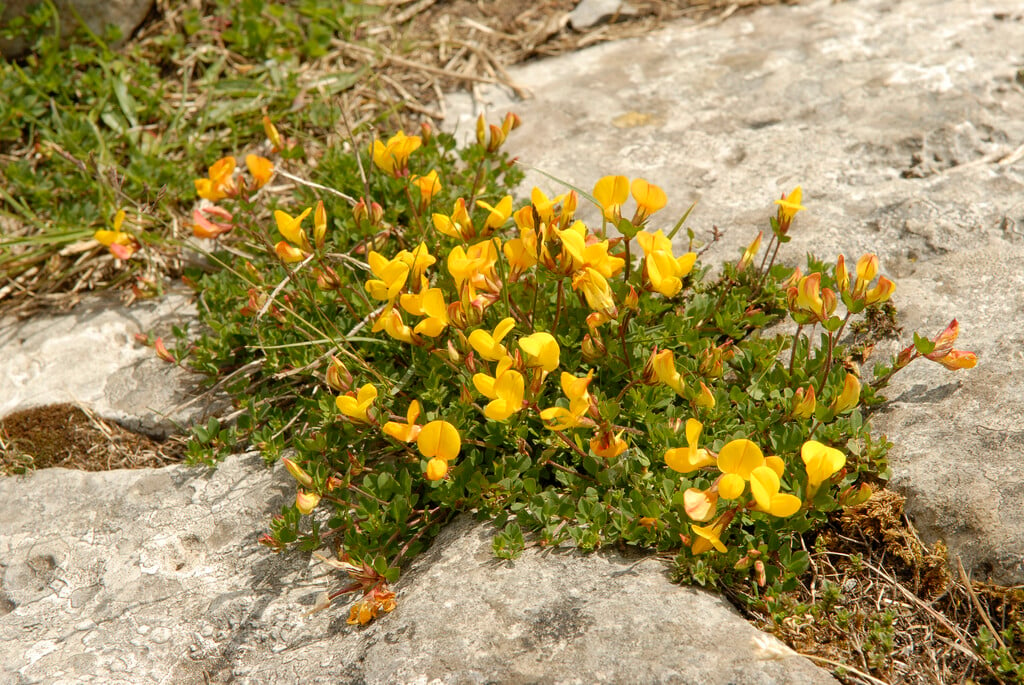Lotus corniculatus
bird's foot trefoil
A perennial of lax habit reaching up to 20cm in height. Leaves are held in groups of 5, with one pair below a terminal trio. Yellow-coloured pea flowers emerge from heads of red-tinged buds from late spring to early autumn. Seed pods are long and slim. A good source of nectar for bees and a larval food source for some moths
Other common names
bird's foot cloverbloomfel
see morebutter-jags
cheesecake grass
cross toes
crow's foot
crowtoes
fingers and thumbs
fingers and toes
ground honeysuckle
lamb's cress
lamb's toes
sheep foot
shoes and stockings
bird's eyes
cat in clover
eggs and bacon
lady's fingers
lady's slipper
Size
Ultimate height
0.1–0.5 metresTime to ultimate height
1–2 yearsUltimate spread
0.1–0.5 metresGrowing conditions
Moisture
Well–drainedpH
Acid, Alkaline, NeutralColour & scent
| Stem | Flower | Foliage | Fruit | |
| Spring | Red Yellow | Green | ||
|---|---|---|---|---|
| Summer | Red Yellow | Green | ||
| Autumn | Red Yellow | Green | ||
| Winter |
Position
- Full sun
Aspect
South–facing or East–facing or West–facing
Exposure
Exposed or Sheltered Hardiness
H7Botanical details
- Family
- Fabaceae
- Native to GB / Ireland
- Yes
- Foliage
- Deciduous
- Habit
- Bushy
- Genus
Lotus can be annuals, perennials, deciduous or evergreen shrubs, with simple or compound leaves and pea-like flowers that may be solitary or clustered
- Name status
Correct
- Plant range
- Europe, Asia, Africa
How to grow
Cultivation
Grows in grassy places in sun, on well-drained, low-nitrogen soils, and often appears in lawns. See clover in lawns for more information
Propagation
Propagate by seed sown all year round
Suggested planting locations and garden types
- Wildflower meadow
- Wildlife gardens
Pruning
No pruning required
Pests
Generally pest-free
Diseases
Generally disease-free
Love gardening
Sign up to receive regular gardening tips, inspiration, offers and more
View our Privacy Policy
Get involved
The Royal Horticultural Society is the UK’s leading gardening charity. We aim to enrich everyone’s life through plants, and make the UK a greener and more beautiful place.

